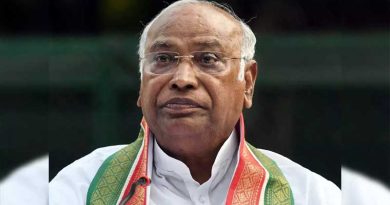US exemption on electronics: India has clear tariff edge over China
New Delhi, April 13 : Industry leaders and experts on Sunday welcomed the Donald Trump administration’s decision to exempt smartphones, computers and other electronics imported to the country from reciprocal tariffs — a move which has given India a definitive edge over China.
According to a US Customs and Border Protection notice, the smartphones and computers would be excluded from US President Donald Trump’s 10 per cent global tariff on most countries, and the much larger Chinese tariffs of 145 per cent.
“Now, there will be no extraordinary disruption This is the time to boost capacities and long-term trend against China will remain robust. However, the incredible shock of the last few weeks is a tectonic event and the realignments are bound to happen,” said Pankaj Mohindroo, Chairman, India Cellular and Electronics Association (ICEA).
China still has 20 per cent tariffs on iPhones, laptops, tablets and smartwatches and only reciprocal tariffs have been removed for China.
On the other hand, India has “zero tariff” on iPhones and all smartphones, laptop and tablets exported to US.
Vietnam also has “zero tariff” on all Samsung (and others) smartphones, laptop and tablets exported to US.
So India and Vietnam are similarly placed on tariffs on above products and both enjoy 20 per cent tariff advantage over China.
The US exemption applies to products entering the US or removed from warehouses as early as April 5, according to the Customs notice. The exemptions also include other electronic devices and components, including semiconductors, solar cells, and memory cards.
The US tariff exclusions provide much-needed relief for the global technology sector, easing pressure across consumer electronics, semiconductors, and hardware, said Prabhu Ram, VP-Industry Research Group, CyberMedia Research (CMR).
The move offers meaningful reprieve to tech majors — especially Apple, which was caught in the crossfire — as well as the broader chip and hardware industries.
“The exclusion of smartphones and chips is particularly critical in the context of China tariffs. While it addresses near-term concerns, long-term uncertainty around US-China trade dynamics remains,” Ram told IANS.
As the geopolitical and economic landscape evolves, India must strategise swiftly, leveraging trade diplomacy, domestic policy shifts, and industrial resilience to mitigate risks and maintain its competitive edge in global trade, said industry leaders.









